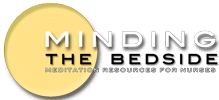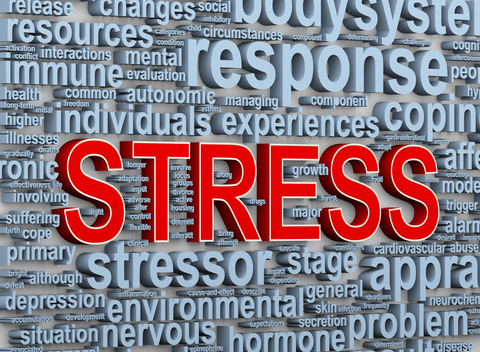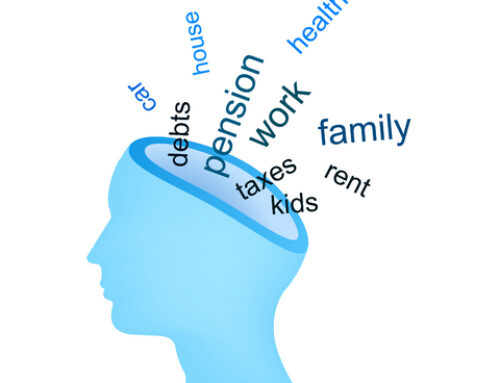A Worldwide Epidemic of Stress in Nursing
As an RN, I’ve worked in many environments that I would describe as “stressful.” Why were they stressful? Because there was an abundance of stressors.
People often confuse the words around stress, maybe because they’re so stressed out?! Before we can learn how to handle stress in our life, it might be worth knowing what we can modify (hint: that’s the stress) and what is out of our control.
The Definition of Stress
It seems that whenever I research challenges in nursing, the main topic seems to be stress. Whether it’s in the UK, New Zealand, or Australia, even in Iran – nurses are stressed out! And this situation seems to be endemic in our profession, in fact – there seems to be a worldwide epidemic of stress in nursing!
So, are nurses stressed, or are they facing an increase in stressors? Let’s define these two.
When we talk about stress, we’re usually describing what’s going on inside of our body and/or inside our mind, right? Stress isn’t the “thing out there” that we’re experiencing; we’re experiencing the “stuff inside,” the physiological or mental stress that’s accompanying a particular environment or situation.
Stress is the physiological juice, as well as the mental clouding, anxiety, or distraction that we experience when we encounter stressors.
Stressors, on the other hand, are the external pressures that exert their stressful effects on us. At work they could be heavy patient care assignments, loud work environments, conflict with our peers, or inadequate care resources.
There are also some stressors that are internal, like disease or illness. Most of the time, however, that’s not what we’re encountering when we experience stress in the workplace. And, of course, there are the stressors in our daily lives; traffic, finances, family, health…and on, and on.
A Bit About Emotions and Feelings
When we experience physiological stress, what we do with it is equally as important as what it’s due to. The physiology of the experience is also known as an emotion, whereas the “what we do with it,” or our interpretation of the emotion is our feeling. While we can’t always do anything to control the emotion of the situation (stress), we can modify what we think about it or how we interpret it, our feelings.
Can You Modify Your Work Environment?
First of all, many of us put a lot of effort into trying to control our external circumstances or stressors. And, in many cases that’s appropriate. For instance, if something in our work environment is causing us to feel unsafe in how we deliver care to our patients, it makes complete sense to advocate for changes, both for ourselves as well as our patients.
Additionally, there are many things that we can do to decrease the effects of stressful work environments, like taking breaks, getting out for short walks, staying hydrated, and eating healthy snacks. But, when we try to control all of the potential stressors that we encounter at work, that can be an endless struggle.
How About Modifying the Stress that You Experience?
The one thing that you can begin to do today is learn how to work with the effects of stress in your body. When you experience stress, when you feel your heart racing or your breath change, what’s the first thing that you do? If you’re like many of us, you interpret what you’re experiencing with a feeling; “I’m feeling angry…I’m feeling scared…I’m feeling…whatever!” But, how does this interpretation make you feel? Does it make you feel better, or does it perpetuate the stress that you’re feeling?
Chances are, when you experience stress and then say to yourself, “I’m stressed,” it doesn’t help to eliminate the stress. Chances are, it makes it worse. How do you think you’d experience stress if you were able to reframe it? Would your life feel less “stressful?” Most likely.
Reframing Stress
What happens when you experience stress? Is your first reaction to say, “Crap!”? Do you wish that things were different? Do you try to feel your way out of the situation? Most of us don’t enjoy the experience of stress and will do…just about anything to get away from it.
Sometimes our efforts are effective; we can relieve the stress by ignoring it or changing the subject. However, unless we’re able to look directly into the face of what’s stressing us, there’s a good possibility that the next time that we encounter stressor(s) that affected us, we’ll do the same thing…but we won’t deal with it.
Have you ever noticed that no matter what you’re feeling, no matter how stressed you might feel, it eventually goes away? Even if you’re feeling neurotic, have you noticed that no matter what’s happening, it will change? What happens when you simply experience what’s happening in your body without interpreting it? What if you just notice and say to yourself, “Hmm, this feels stressful to me…this is how I feel when I’m upset…this feeling will go away.”
The fact is, everything that we feel eventually changes. I remember when my father died suddenly; I felt like I’d been thrown into a chaotic sea of churning waves. It feel insurmountable. And yet…years later, here I am. Healthy. Able to remember my dad with fond memories.
Emotions, feelings, stress…all of it, is impermanent and changes. It’s only our feeling that “This will never end” that causes it to go on even one more minute more than it needs to. This is an important point that we all need to remember; stress doesn’t last forever.
The Next Time that You Experience Stress in Nursing…
The next time that you experience stress in nursing, just take a moment to stop an assess what’s going on; in your environment, in your body, and in your mind. Take a few moments to reframe what you’re feeling with the remembrance that what you’re experiencing will eventually dissipate. This doesn’t mean that you have to deny what you’re feeling; just put it into perspective.
Meditation Helps to Put Stress Into Perspective
My job…no, my mission! is to help you to live a more stress-free and present life. One of the ways that I can do that is to offer you resources on meditation, mindfulness, and awareness. Ongoing research in meditation continues to prove its benefits in relieving stress and in helping people to show up more fully.
Maybe you’ve already got a meditation practice. If that’s the case, great! Keep it up and feel free to use all of the content from this site to support you in your efforts.
If you haven’t started to meditate, begin now.
Many people don’t meditate because they believe that they need to do “something special” in order to meditate, maybe you’re one of them. “Doing something” special isn’t the case. All you need is your breath, and a few minutes of time set aside to begin your practice. Here are some tools to get you started:
- Meditation audio for using your breath as the anchor of your attention during meditation.
- Ebook and two chapters from the book, Minding the Bedside: Nursing from the Heart of the Awakened Mind, on how to meditate.
- Even though my book was written with nurses in mind, I continue to get feedback from those who have bought it who aren’t nurses that they find it useful in their lives. So, whether you’re a nurse, a nursing student, or someone who appreciates what I’m offering on this site, check out the book, Minding the Bedside: Nursing from the Heart of the Awakened Mind. It’s really written for anyone. You can even buy it in a Kindle version!
This site has tons of tools for learning how to meditate.
I encourage you to look through the HUNDREDS of articles that I’ve written and especially check out my weekly meditation tips and other useful meditation materials provided for your health and well being. And please let me know if you’d like to discuss anything with me, have any questions or need clarification regarding anything that I’ve written about.
Thanks for visiting and have a mindful day.





[…] usually talking about the circumstances at work that are causing us to experience stress (see article on stressors and stress to learn the difference between what stresses us and what we […]
[…] past articles, we’ve looked at the difference between a stressor and the act of feeling stress, so we know that we can change our experience of stress and we can’t always change […]